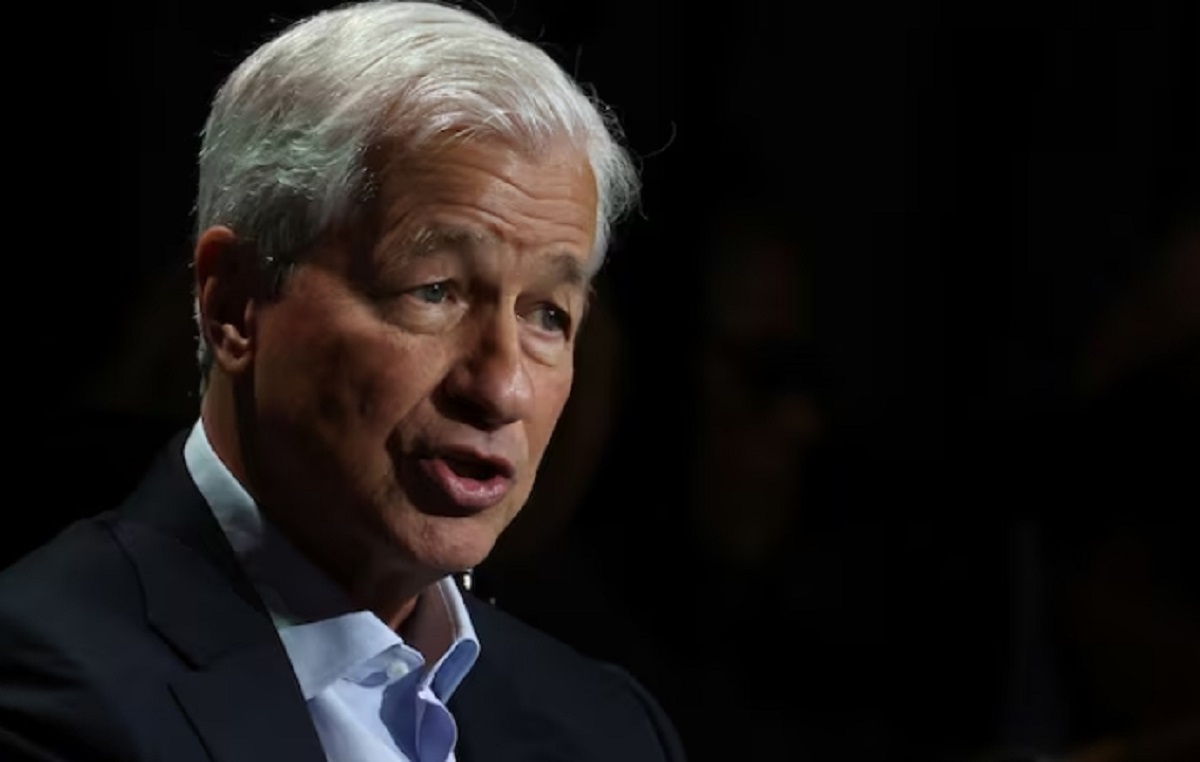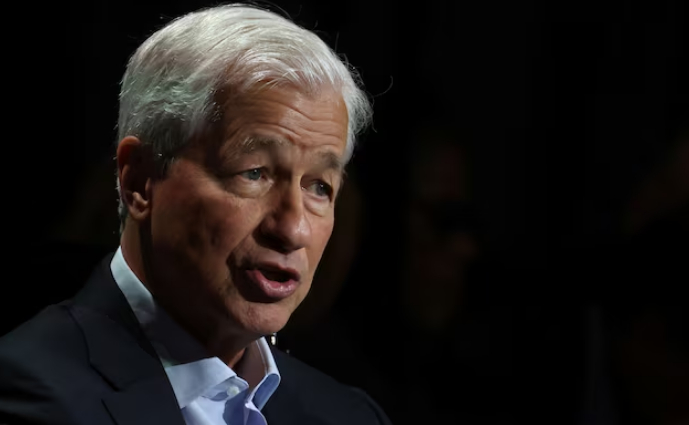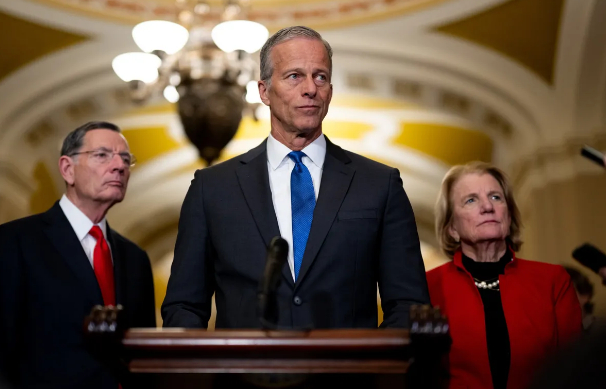Dimon’s Debt Warning Looms as Senate Tackles Trump’s Tax Overhaul
The U.S. economy stands at a crossroads as the national debt spirals upward and lawmakers wrestle with President Donald Trump’s ambitious $3.9 trillion tax-cut bill. Amid this fiscal uncertainty, jpmo

The U.S. economy stands at a crossroads as the national debt spirals upward and lawmakers wrestle with President Donald Trump’s ambitious $3.9 trillion tax-cut bill.
Amid this fiscal uncertainty, jpmorgan chase CEO Jamie Dimon has sounded a clarion call, warning that the burgeoning debt could destabilize the bond market and ripple through the broader economy. His remarks coincide with the Senate’s efforts to reshape Trump’s “Big, Beautiful Bill,” a legislative juggernaut that narrowly passed the House and now faces a contentious overhaul.
As senators grapple with deficit concerns, tax permanence, and regulatory tangles, the stakes for financial markets and American borrowers have rarely been higher.
Jamie Dimon’s Dire Forecast

In a recent appearance on Fox Business, Dimon labeled the rising U.S. national debt a “big deal,” cautioning that it could spell trouble for the bond market. “If people decide that the U.S. dollar isn’t the place to be, you could see credit spreads gap out; that would be quite a problem,” he said. The fallout, he argued, would hit hardest those reliant on borrowing—small businesses, high-yield debt issuers, leveraged lenders, and real estate developers. “That’s why you should worry about volatility in the bond market,” Dimon emphasized.
At 69, Dimon is a towering figure in finance, having led jpmorgan Chase—America’s largest bank—for over 19 years. His tenure has weathered multiple crises, earning him a reputation as a trusted voice, often consulted by policymakers. During the 2024 presidential campaign, his name surfaced as a potential Treasury Secretary, though he opted to stay at JPMorgan. When pressed about succession, Dimon hinted at “several years” left in his tenure, possibly transitioning to chairman afterward. “I love what I do,” he said.
His warnings are grounded in stark realities. The national debt now exceeds $36 trillion, with bond markets showing signs of strain—yields on the 10-year Treasury note recently hit 4.418% amid weak auction demand. Dimon has long criticized unchecked government spending, a stance reinforced by shifting economic policies that have rattled investors. While he can’t pinpoint when turmoil might strike, he’s unequivocal about its inevitability: “It’s going to happen.”
Senate’s Tax Bill Tightrope

Meanwhile, the Senate has taken up Trump’s tax bill, a $3.9 trillion package that squeaked through the House by a single vote.
Closed-door talks began this week, with Republican leaders aiming to cement temporary tax cuts—such as the research and development deduction and 100% bonus depreciation—into permanent law. These changes, however, would balloon the bill’s deficit impact beyond its current $2.5 trillion estimate, pitting fiscal hawks against moderates and complicating an already fragile coalition.
President Trump has been working the phones, assuring senators like Josh Hawley that Medicaid benefits will remain intact. Hawley, a staunch defender of the program, praised their “great talk,” though the House bill’s projected coverage cuts for 7.7 million people loom large. Trump also courted Senator Ron Johnson, a holdout pushing for $5.5 trillion to $6.5 trillion in spending reductions. Johnson signaled flexibility after their discussion, saying, “I want to work with the president,” but insists on deeper cuts down the line.
The Senate’s task is further muddied by procedural hurdles. Rules-keeper Elizabeth MacDonough will scrutinize provisions like gun silencer deregulation and AI policy preemption, which could be axed if deemed non-budgetary. Such cuts risk alienating House conservatives, prompting Representative Jason Smith, the House’s top tax writer, to urge restraint. “Don’t be too drastic, be very balanced,” Smith warned.
Key changes under consideration include:
- Business Tax Breaks: Senate Finance Chairman Mike Crapo wants to lock in temporary provisions expiring in 2029, using a budget gimmick to mask costs by assuming 2017 tax cuts carry no price tag. This could free up room for individual tax relief, like cuts on tips and overtime.
- Debt Ceiling: The House bill raises the borrowing limit by $4 trillion, but the Senate favors $5 trillion to push the next deadline past 2026. With the Treasury nearing its borrowing cap by August or September, urgency is mounting.
- SALT and Green Energy: The House boosted the state and local tax (SALT) deduction to $40,000, but Senate deficit hawks like John Kennedy favor the current $10,000 cap. Moderates like Lisa Murkowski, meanwhile, resist cuts to clean energy credits, clashing with conservatives who want them gone.
Economic Stakes and Market Risks
The Senate’s decisions will reverberate through the economy. Permanently extending tax cuts could juice short-term growth but deepen the deficit, a concern Dimon has tied to bond market stability. Deficit hawks may demand offsets—spending cuts or ending tax breaks like carried interest—while moderates fret over safety-net reductions. The House bill’s Medicaid and food stamp tweaks already worry senators like Susan Collins and Murkowski, despite Trump’s assurances.
Financial markets are on edge. Dimon has warned that a loss of faith in the dollar could widen credit spreads, hiking borrowing costs for businesses and consumers. “It hurts the people raising money,” he said, a sentiment echoed by Moody’s recent downgrade of the U.S. credit rating. The debt ceiling debate adds another layer of risk; failure to raise it could trigger a default, further unsettling investors.
Former Senate budget staffer Bill Hoagland predicts a protracted battle. “It would be very difficult to get it out of the Senate quickly,” he said, citing the bill’s complexity and the July 4 target set by Republicans. Regulatory provisions—repealing silencer rules, defunding Planned Parenthood, easing fossil fuel permits—face additional scrutiny, potentially delaying progress.
A Precarious Path Ahead
The interplay between Dimon’s debt warnings and the Senate’s tax negotiations underscores a broader tension: growth versus fiscal discipline. Dimon advocates a balanced approach, urging lawmakers to “get the tax bill done” while curbing reckless spending. “Grow the economy at 3% a year, and all these problems will disappear,” he’s argued, though he’s skeptical of Washington’s resolve.
For now, the Senate must thread a needle—reconciling Trump’s vision with fiscal realities while averting a market backlash. Success could stabilize the economy; failure might hasten the bond turmoil Dimon fears. As the debt clock ticks, the outcome remains uncertain, with America’s financial future hanging in the balance.
Disclaimer: The views in this article are from the original Creator and do not represent the views or position of Hawk Insight. The content of the article is for reference, communication and learning only, and does not constitute investment advice. If it involves copyright issues, please contact us for deletion.